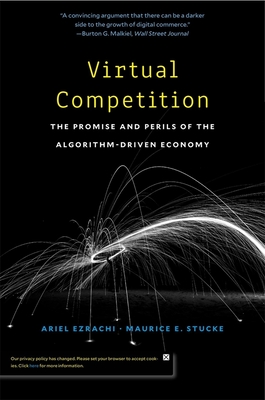Expedite your nonfiction book discovery process with Readara interviews, summaries and recommendations, Broaden your knowledge and gain insights from leading experts and scholars
In-depth, hour-long interviews with notable nonfiction authors, Gain new perspectives and ideas from the writer’s expertise and research, Valuable resource for readers and researchers
Optimize your book discovery process, Four-to eight-page summaries prepared by subject matter experts, Quickly review the book’s central messages and range of content
Books are handpicked covering a wide range of important categories and topics, Selected authors are subject experts, field professionals, or distinguished academics
Our editorial team includes books offering insights, unique views and researched-narratives in categories, Trade shows and book fairs, Book signings and in person author talks,Webinars and online events
Connect with editors and designers,Discover PR & marketing services providers, Source printers and related service providers

Virtual Competition: The Promise and Perils of the Algorithm-Driven Economy
Business & Economics > E-Commerce - General (see also Computers - Electronic Commerce)
- Harvard University Press
- Paperback
- 9780674241589
- 8.2 X 5.4 X 1 inches
- 0.7 pounds
- Business & Economics > E-Commerce - General (see also Computers - Electronic Commerce)
- (Single Author) Asian American
- English
Readara.com
Book Description
A fascinating book about how platform internet companies (Amazon, Facebook, and so on) are changing the norms of economic competition.
--Fast Company
Shoppers with a bargain-hunting impulse and internet access can find a universe of products at their fingertips. But is there a dark side to internet commerce? This thought-provoking expos� invites us to explore how sophisticated algorithms and data-crunching are changing the nature of market competition, and not always for the better. Introducing into the policy lexicon terms such as algorithmic collusion, behavioral discrimination, and super-platforms, Ariel Ezrachi and Maurice E. Stucke explore the resulting impact on competition, our democratic ideals, our wallets, and our well-being.
We owe the authors our deep gratitude for anticipating and explaining the consequences of living in a world in which black boxes collude and leave no trails behind. They make it clear that in a world of big data and algorithmic pricing, consumers are outgunned and antitrust laws are outdated, especially in the United States.
--Science
A convincing argument that there can be a darker side to the growth of digital commerce. The replacement of the invisible hand of competition by the digitized hand of internet commerce can give rise to anticompetitive behavior that the competition authorities are ill equipped to deal with.
--Burton G. Malkiel, Wall Street Journal
A convincing case for the need to rethink competition law to cope with algorithmic capitalism's potential for malfeasance.
--John Naughton, The Observer
Author Bio
Ariel Ezrachi is the Slaughter and May Professor of Competition Law and a Fellow of Pembroke College, Oxford. He serves as the Director of the University of Oxford Centre for Competition Law and Policy.
He is co-editor-in-chief of the Journal of Antitrust Enforcement (OUP) and the author, co-author, editor and co-editor of numerous books, including Competition Overdose (2020, HarperCollins), Virtual Competition - The Promise and Perils of the Algorithm Driven Economy (2016, Harvard), EU Competition Law - An Analytical Guide to the Leading Cases (7th ed, 2021, Hart), Competition and Antitrust Law - VSI (2021, OUP), Global Antitrust Compliance Handbook (2014, OUP), Research Handbook on International Competition Law (2012 EE), Intellectual Property and Competition Law: New Frontiers (2011, OUP), Criminalising Cartels: Critical Studies of an International Regulatory Movement (2011, Hart), Article 82 EC - Reflections on its recent evolution (2009, Hart) and Private Labels, Brands and Competition Policy (2009, OUP).
His recently published papers focus on the digital economy, e-commerce, parity clauses, marketplace bans, vertical agreements, buyer power and the limits of competition law. They include the award winning papers 'Sponge', 'Artificial Intelligence & Collusion', and 'Sustainable and Unchallenged Algorithmic Tacit Collusion'. He is also author of the BEUC consultation paper on 'EU competition law and digital economy' and co-author of the report on 'Digital Platforms' (Stigler Center, Chicago University, Booth School of Business) and the Independent Expert Report on Digitalisation and its Impact on Innovation (EU Commission).
His research and commentary have been featured in The Economist, The New Yorker, Wall Street Journal, Financial Times, The Guardian (opinion), The Guardian, Nikkei, Times Higher Education, Harvard Business Review, HBR (2), Berkeley Technology Law Journal, Chicago University Pro Market, New Scientist, Politico, Politico-pro, Politico-Tec, China Daily, OBLB, WIRED, Click - BBC, BBC Radio 4, CPI, Bloomberg, Concurrences, GCR, The Scotsman, The Times, Sunday Times, Fast Company, Nesta, NewStatesman, UNCTAD, OECD, Forbes, Factor, The Australian, NRC 2016, NRC 2018, Business Insider, CMS Wire, Workology, Cited, IAI, Les Echos, ACCC, ZDnet, Financial Express, CLI, Sina, Project-syndicate, and other international outlets.
His work on algorithmic collusion (together with Prof Stucke) has been central to policy discussions in international organisations and competition agencies (including, among others, the CMA, OECD, UN, ICN, House of Lords, Monopolkommission, Autorite de la concurrence and the Bundeskartellamt).
He is part of a reserch project on Competition Policy and Economic Inequality, funded by the Leverhulme Trust.
Prof. Ezrachi develops training and capacity building programmes in competition law and policy for the private and public sectors, including training programmes for European judges endorsed and subsidised by the European Commission. He is an Academic Advisor to the European Consumer Organisation - BEUC, member of the Independent Committee on Digital Platforms, member of UNCTAD Research Partnership Platform, and a former Non-Governmental Advisor to the ICN.
Source: University of Oxford
Videos








Community reviews
No Community reviews

